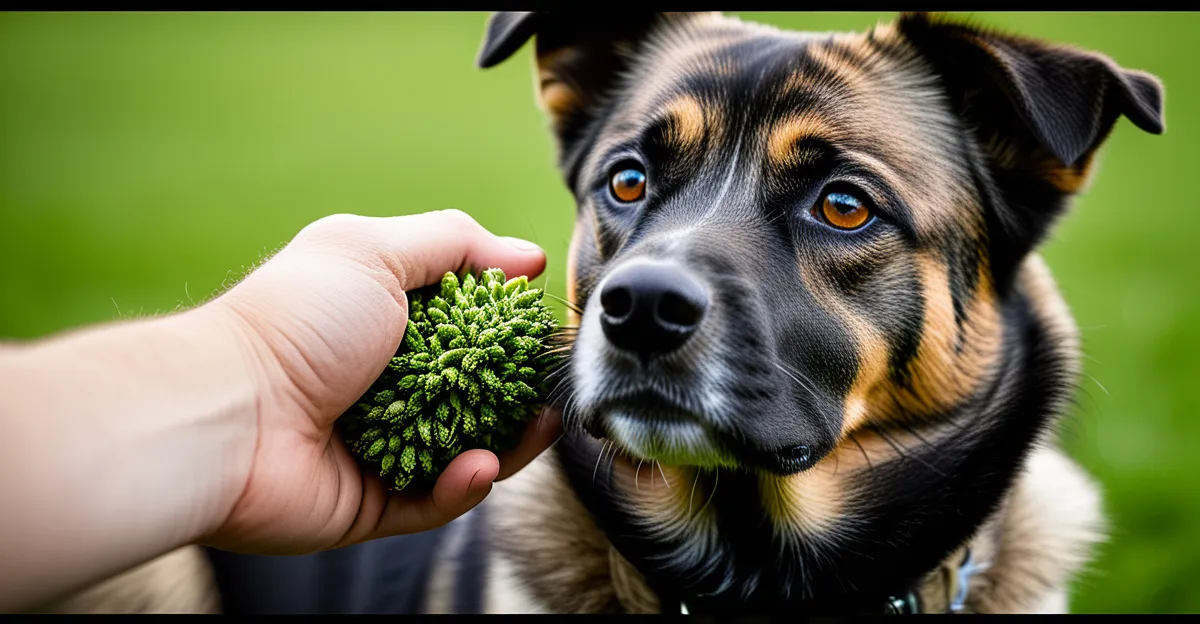Overview of Pet Ownership in the UK
Pet ownership in the United Kingdom has a rich historical context, weaving itself into the very fabric of British life. Traditionally, pets have been considered cherished family members, and this sentiment has endured through the centuries, reflecting the deep cultural significance of pets in British households. From the stately homes to the modest cottages, the presence of pets is often a given, underscoring their role in offering companionship and enhancing the quality of life.
In terms of current statistics, the UK boasts one of the highest rates of pet ownership compared to other countries globally. An interesting facet of this pet-loving nation is the notable preference for cats and dogs, which remain the most common companions. The latest surveys reveal up to 60% of UK households own at least one pet, a testament to the widespread affection for these companions. This figure also highlights the robust growth of the pet industry, fueled by trends in affluent pet care and pampering.
Have you seen this : How Can You Ensure a Pet-Friendly Home in the UK?
Moreover, the cultural significance of pets in Britain cannot be overstated; they often become integral to family festivals and activities. As integral members across all strata of society, pets help foster a sense of community among pet owners. In everyday conversations, themes of pet care and anecdotes from pet lives frequently come up, illustrating the beloved role pets maintain in aligning British identity with values of empathy and care. British lore and literature, from A.A. Milne’s Tigger to Kipling’s tales, further demonstrate the place pets occupy in British culture.
Popular Pet Breeds in the UK
The United Kingdom has a diverse tapestry of popular breeds of both dogs and cats, thanks to differing historical and cultural developments. The unique affinity between Britons and their pets is showcased in the preference for specific breeds which often capture the zeitgeist of the era.
Also read : How Can You Ensure a Healthy and Active Lifestyle for Your UK Pets?
Leading Dog Breeds in the UK
In the realm of dogs, certain breeds have cemented their place as favorites. The Labrador Retriever consistently tops the list due to its friendly nature and adaptability to different living environments. Closely following is the Cocker Spaniel, beloved for its affectionate temperament and boundless energy. These breeds, alongside the newly popular French Bulldog, reflect a trend towards medium to smaller-sized dogs, especially suited for urban living.
Leading Cat Breeds in the UK
When it comes to cats, the UK’s feline landscape displays a rich variety. The British Shorthair holds the crown for the most popular breed, cherished for its calm demeanor and distinctively plush coat. The Ragdoll, known for its gentle and placid nature, also holds a special place in British households. This preference indicates a trend towards breeds that are both companionable and low-maintenance.
Unique Pet Breeds Specific to the UK
Some breeds possess deeper roots in British culture, unique as they are to the UK. The Scottish Fold cat, with its distinctive ear structure, and the Staffordshire Bull Terrier, a loyal and resilient dog, illustrate the UK’s influence on the global pet stage. Such breed popularity trends have evolved over time, influenced by factors such as the cultural significance of pets, the impact of media, and ongoing efforts of dedicated breeders. Pet shows and exhibitions further elevate breed awareness, contributing to evolving preferences and ensuring that both traditional and modern breeds flourish.
Behavioral Traits of UK Pets
Pet behavior in the UK varies widely across species, environments, and training practices. Dogs, cherished for their loyalty, often display friendly and energetic demeanours. Common traits in UK dogs include being social, obedient, and responsive to commands. In contrast, cats typically exude independence but are also affectionate, with many enjoying human interaction.
Training practices in the UK are rooted in positive reinforcement. Owners in the UK often employ strategies focusing on reward systems, such as treats and praise, to encourage desired behaviors in pets. This method enhances obedience and helps address common behavioral issues like excessive barking in dogs or anxiety in cats.
Regional differences also impact pet behavior. Urban pets may be accustomed to noise and crowds, while rural counterparts might be more relaxed due to quieter surroundings. Lifestyle factors, such as access to open spaces or confined living conditions, significantly influence how pets behave. Understanding these nuances can aid pet owners in providing tailored care that suits their pet’s specific needs and environment.
Cultural Influences on Pet Ownership
The pet culture in the United Kingdom plays a significant role in shaping pet care practices and ownership trends. British society has long embraced pets as integral companions, influencing how households structure their routines around their furry friends. UK culture prioritizes nurturing relationships with pets, leading to specialized pet care practices that cater to their well-being.
Role of Pets in British Society
Pets in the UK often hold a central place in family life, providing emotional support and companionship. They are not only companions but also serve as catalysts for social interactions, whether during neighborhood walks or community pet events. This emphasis on companionship underscores the societal value placed on animals as more than just pets, but as family members.
Pet Care Trends in the UK
Recent trends show a significant shift towards premium pet care, with an increasing number of owners opting for high-quality food, grooming, and veterinary services. This move reflects a broader UK lifestyle trend that emphasizes health and well-being. Pet care has become an all-encompassing aspect of daily life, with many owners investing in products and services that enhance their pets’ quality of life.
Influence of Media on Pet Ownership
The influence of media, including TV shows and social media, cannot be overstated when examining pet ownership trends. Exposure to celebrity pets and viral pet content often sparks trends, prompting a rise in the popularity of specific breeds. The portrayal of pets in media can also highlight breed characteristics and needs, aiding potential owners in making informed decisions. Whether in urban apartments or rural expanses, UK lifestyle choices ensure pets are integral to daily living, adapting care to suit diverse settings.
Statistics and Expert Opinions
Delving into the pet statistics of the UK unveils intriguing insights into national pet demographics. Recent surveys underscore that approximately 60% of UK households own at least one pet, putting the nation at the forefront of global pet ownership rates. This affection for animals is mirrored in the thriving UK pet industry, which anticipates consistent growth due to increasing demand for premium pet services.
Expert insights play a pivotal role in shaping future trends in this domain. Veterinarians and pet care professionals forecast a continued emphasis on holistic pet wellness—a trend that extends beyond traditional health care to encompass behavioral guidance and nutritional advancements. Industry forecasts suggest a rise in tech-integrated pet products, aiming to enhance animal well-being and simplify ownership through innovation.
The synergy between pet owners and expert advice is pivotal for the UK’s pet landscape. This exchange of knowledge ensures owners are well-equipped to meet their pets’ evolving needs, thereby fostering an environment where pets can thrive. As we look to the future, these collaborative efforts between pet owners and industry experts promise to elevate the standard of pet care across the nation.
Challenges and Considerations for UK Pet Owners
Caring for a pet in the UK comes with its own set of challenges and considerations, influenced by a variety of factors including legal regulations and health concerns. Regulations surrounding pet ownership are designed to ensure the welfare of animals, and compliance with these laws is paramount for all pet owners.
Legal Issues Surrounding Pet Ownership
A primary concern for UK pet owners is understanding and adhering to pet ownership regulations. Recent legislation focuses on improving animal welfare, such as the Animal Welfare (Sentience) Act 2022, which acknowledges the sentience of animals and requires the UK government to account for their welfare in policy decisions. Pet owners must also be aware of specific acts regulating the breeding, sale, and care of pets to avoid hefty fines or legal issues. Licensing requirements for breeders, microchipping of dogs, and restrictions on certain breeds under the Dangerous Dogs Act are examples of legal responsibilities that pet owners must fulfill to ensure compliance.
Common Health Issues in UK Pets
Health concerns are another significant aspect of pet ownership. UK pets commonly face issues like obesity, a problem linked with increased risk of diabetes, arthritis, and heart disease. Veterinarians often advise regular exercise, a balanced diet, and routine health checks to prevent these conditions. Common hereditary conditions, such as hip dysplasia in many dog breeds and polycystic kidney disease in cats, require owners to be vigilant and proactive with veterinary care. These health challenges highlight the importance of breed-specific research and regular vet visits to maintain pet health.
Resources Available for UK Pet Owners Facing Challenges
In facing these challenges, UK pet owners have access to a wealth of resources. Local councils and organizations provide guidance on regulatory compliance, while veterinary practices offer services designed to address common health issues. Educational workshops and online resources aid owners in understanding pet health and welfare requirements. Engaging with pet communities, both online and offline, provides additional support and advice, fostering an environment where pet well-being is prioritized. Access to these resources ensures that pet ownership remains a rewarding experience, despite the challenges that may arise.









